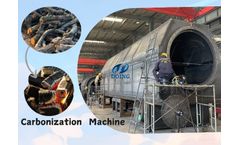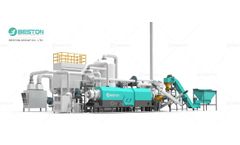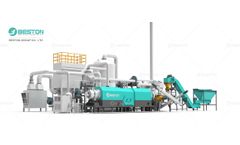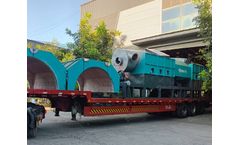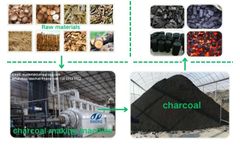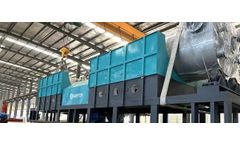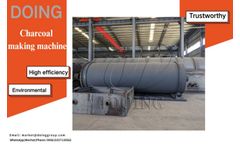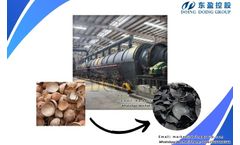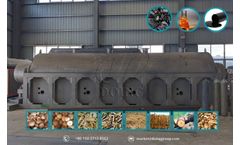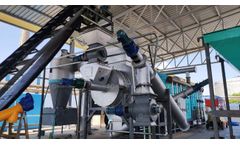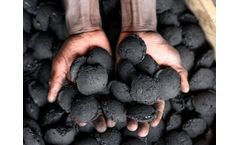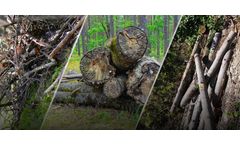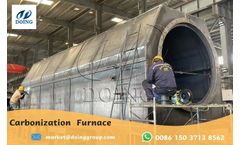Charcoal Making Machinery For Charcoal Articles & Analysis
396 articles found
Barbecuing is a popular outdoor activity, and barbecue charcoal is an essential fuel for both outdoor grilling and catering. So, how to make high-quality barbecue charcoal? While the process isn't complicated, it does require certain equipment and skills. BBQ charcoal is typically made by carbonizing wood at high temperatures. This process removes moisture and volatile substances from the wood, ...
In recent years, the conversation around climate change mitigation has shifted from simply reducing emissions to actively removing carbon dioxide from the atmosphere. Among the emerging solutions, biochar production through biomass carbonization is gaining attention as both a waste management tool and a carbon sequestration strategy. While large-scale biomass pyrolysis plants often dominate ...
Sustaining efficient performance in charcoal production equipment requires disciplined maintenance routines and adherence to operational best practices. A machine that is well-maintained not only delivers consistent yields but also minimizes energy losses and prolongs the service life of critical components. Routine care ensures that investment in thermal conversion technology generates long-term ...
The economic viability of a small charcoal making machine begins with an assessment of capital expenditure and recurring costs. Compact units demand relatively low initial investment compared to industrial-scale plants, making them accessible for individual entrepreneurs and small businesses. Operating costs encompass feedstock acquisition, energy input for pyrolysis, and routine maintenance. ...
Charcoal production has historically been associated with high levels of particulate matter, volatile organic compounds, and greenhouse gas emissions. Traditional carbonization methods, often reliant on open pits or rudimentary kilns, release uncontrolled smoke and pollutants, contributing to environmental degradation. Modern charcoal making machines, integrated with a biomass carbonization ...
In today's increasingly environmentally conscious world, charcoal maker machines, as an environmentally friendly production equipment, are attracting increasing attention. A charcoal maker machine converts biomass materials into high-quality charcoal through a high-temperature carbonization process. This process not only preserves the energy value of the raw materials but also significantly ...
In recent years, BBQ charcoal has become more than just a backyard essential—it’s now a booming market with strong investment potential. As demand for eco-friendly grilling options grows worldwide, investors are turning their attention to sustainable solutions like BBQ charcoal making machines to enter this lucrative space. Why BBQ Charcoal is in High Demand Barbecue culture is ...
Establishing a production line with a sawdust charcoal making machine offers a profitable and sustainable business model. ...
The coconut industry is traditionally known for producing oil, water, milk, and coir, but there’s an often-overlooked byproduct with tremendous untapped value—the coconut shell. Once considered agricultural waste, coconut shells are now gaining recognition as a sustainable raw material for charcoal production, opening up new income streams and adding value across the supply chain. ...
As an environmentally friendly fuel, charcoal plays an important role in agricultural improvement, energy utilization and environmental protection. If you are considering entering the field of charcoal production, understanding the professional machine required is the first step to success. Several types of machine are usually needed to produce charcoal. These include raw material preparation ...
The transformation of sawdust into charcoal is a thermochemical conversion process that requires precise control of temperature, residence time, and atmospheric conditions. A modern charcoal making machine, whether processing sawdust, wood chips, or agricultural residues, is engineered for continuous operation, high yield, and minimal emissions. While often associated with wood waste, the same ...
Coconut shell charcoal, as an environmentally friendly and efficient fuel, is widely used in many fields such as home barbecue, industrial production and air purification. Although its making process involves multiple steps, each step from raw material preparation to the final product is crucial to ensure the quality and effectiveness of the final product. Next, we will introduce the making ...
Making charcoal through a carbonization process in a plant involves heating organic materials, such as wood, in the absence of oxygen to drive off volatile compounds and leave behind carbon-rich material. This method is also known as pyrolysis and is applicable to various raw materials for producing biochar or charcoal, including but not limited to wood, fruit shells (such as coconut shells, palm ...
Biochar production from waste coconut shells has garnered increasing attention as a sustainable business model that not only contributes to environmental conservation but also offers substantial economic benefits. As the demand for renewable resources and waste-to-energy technologies grows, the profitability of biochar production has become an important consideration for businesses and investors ...
The quality of barbecue charcoal is paramount for a superior grilling experience. High-quality charcoal ensures consistent heat, minimal smoke, and extended burn time, which are crucial for grilling food to perfection. Achieving the desired quality requires attention to various factors during both the production and processing stages. From raw material selection to machine efficiency, several ...
The practice of straw burning, particularly in agricultural regions, has long been a controversial issue due to its significant environmental consequences. While it may appear to be a convenient method for dealing with post-harvest residue, the environmental damage caused by this practice is far-reaching. The release of harmful gases, the destruction of soil quality, and the contribution to air ...
Through the integration of a charcoal making machine, this process offers a sustainable alternative to traditional practices, emphasizing resource efficiency and ecological preservation. ...
Charcoal is made by heating biomass waste such as wood and fruit shells in an oxygen-deficient or low-oxygen environment. This process is called carbonization. The carbonization process removes moisture, volatile substances and other impurities from the wood, leaving behind a substance that is almost pure carbon, namely charcoal. There are many materials available for making charcoal, which can ...
Deforestation is a critical environmental issue that poses significant threats to biodiversity, climate stability, and the livelihoods of communities worldwide. One of the factors contributing to deforestation is the demand for charcoal, a widely used fuel source in many developing countries. However, charcoal making machines offer innovative solutions that can help mitigate the impact of ...
Biochar has garnered attention for its numerous environmental benefits, especially its ability to enhance soil fertility, sequester carbon, and improve waste management practices. Among the various biomass sources used for biochar production, rice husk is a particularly abundant and promising feedstock, especially in regions with significant rice production. But how does biochar derived from rice ...

